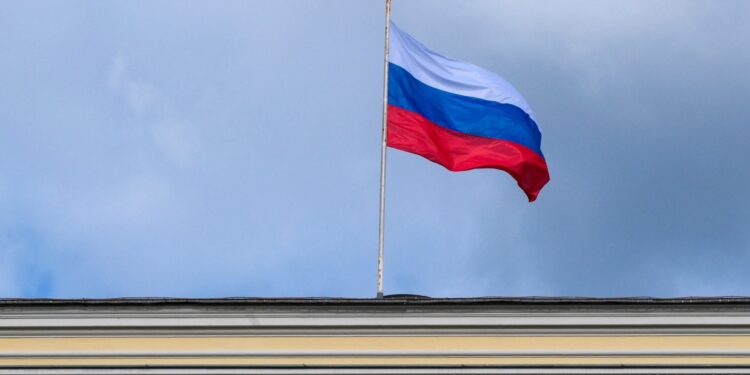MoscowRussia is on the verge of a new turning point in its multi-faceted conflict with the West, after recent deliberations among the G7 finance ministers that took place in Stresa in northern Italy showed greater agreement on the European Union Council’s decision to transfer most of the income generated from investing frozen Russian assets to… Ukraine for its support in the war.
Before that, the European Commission had approved a proposal to use the proceeds of frozen Russian funds to provide assistance to Kiev, stipulating that 90% of the revenues from Russian assets be transferred to purchase missiles for Ukraine and 10% be transferred to the European Union budget for subsequent support to Ukraine.
After the outbreak of war between Russia and Ukraine, the West froze Russian assets worth about 300 billion euros, the proceeds of which were scheduled to be spent on purchasing weapons for Kiev.
Moscow warns
In response to the latest position, the Russian delegate to the European Union, Vladimir Chigov, announced on May 21 that the European Union would sooner or later be forced to return the frozen Russian assets that had been seized, warning that “the consequences of this precedent will not be predictable.” , including for the euro area, the economies of the member countries of the Union and the investment climate.”
For her part, Director of the Russian Central Bank, Elvira Nabiullina, warned that Moscow would take “appropriate measures to protect its interests if the West disposes of the frozen Russian assets.”
As for Russian Finance Minister Anton Siluanov, he was more clear in his statements when he said, “If our property, money, and reserves are seized by Western countries and their income is used, we will act in exactly the same way, and we will confiscate all the assets that Western countries possess here in Russia.”
In a previous statement by Slonov last February, he said that his country froze Western assets worth no less than what the West froze.
Warnings
Russian experts and observers – interviewed by Al Jazeera Net – believe that the European Union’s decision to transfer proceeds from frozen Russian assets as military aid to Kiev – if that happens – will not pass without consequences on the financial systems, even in European countries and the United States.
Russian economist Viktor Lashon doubts that all this money will go to help Ukraine, as some of it may end up in transnational arms companies in the United States, as well as in the pockets of European employees, as he put it.
According to Lashon, the possibility of misappropriation of funds is very high, because so far it is clear that the money transferred to Ukraine does not reach the recipient (i.e. the Ukrainian army). In light of the propaganda of rampant Ukrainian corruption, this money, which is transferred to Ukraine, is also stolen in the West.
Raise morale
Lashon does not rule out that Western statements about transferring interest on Russian assets are linked to “raising the morale of the Ukrainian population and the bandit elite who are today trying to fight against Russia for the benefit of the West.”
At the official level, the Western regime’s desire to freeze Russian assets – which may later develop into their confiscation – prompted Moscow to take action, and Russian President Vladimir Putin signed a decree allowing Moscow and Russian companies to compensate for the damage they suffered at the expense of American assets in Russia.
International relations writer Igor Yushkov sees this step as a Russian move, but it primarily carries warnings for Europe.
Yushkov explains the content of the presidential decree that the United States and Russia do not have significant financial relations, such as those with European countries, so the size of assets in the United States was not the same size as in Europe, which is evident from the large participation of many European companies in the oil and gas business and many Among other projects on Russian territory.
Accordingly, the spokesman confirms that it is not possible at the present time to give a specific answer as to whether American assets in Russia will be sufficient to compensate for the damages.
According to Yushkov’s opinion, the Americans are pushing the Europeans to follow their example, by transferring to Ukraine not only the benefits that trickle from Russia’s gold reserves and frozen foreign currencies, but also the assets themselves.
He explains that the talk is about investing Russian sovereign funds in bonds and other securities that generate income, and the Europeans invest this income and the profits obtained from these investments to be withdrawn and given to Ukraine or to help Ukraine. In other words, they can invest this money in their factories to produce weapons and ammunition for Ukraine, while the United States pressures Europe to give Ukraine all the returns on Russian assets.
The biggest loser
Yushkov continues that although Putin’s decree relates directly to the United States, the legislation could be applied to other countries, especially European Union countries, if Russian assets are seized. Therefore, companies such as Gazprom, Rosatom and others can take advantage of this mechanism to respond to the US-European move.
In the field of oil and gas, the French Total owns approximately 20% of the shares in the Russian energy giant Novatek, and BP owns approximately 20% in the Russian Rosneft, in addition to the presence of foreign shares in the Russian Gazprom.
The speaker adds to this the money that was due when dividends were paid to foreigners but has been frozen in special accounts, which can also be distributed as compensation for damages.



